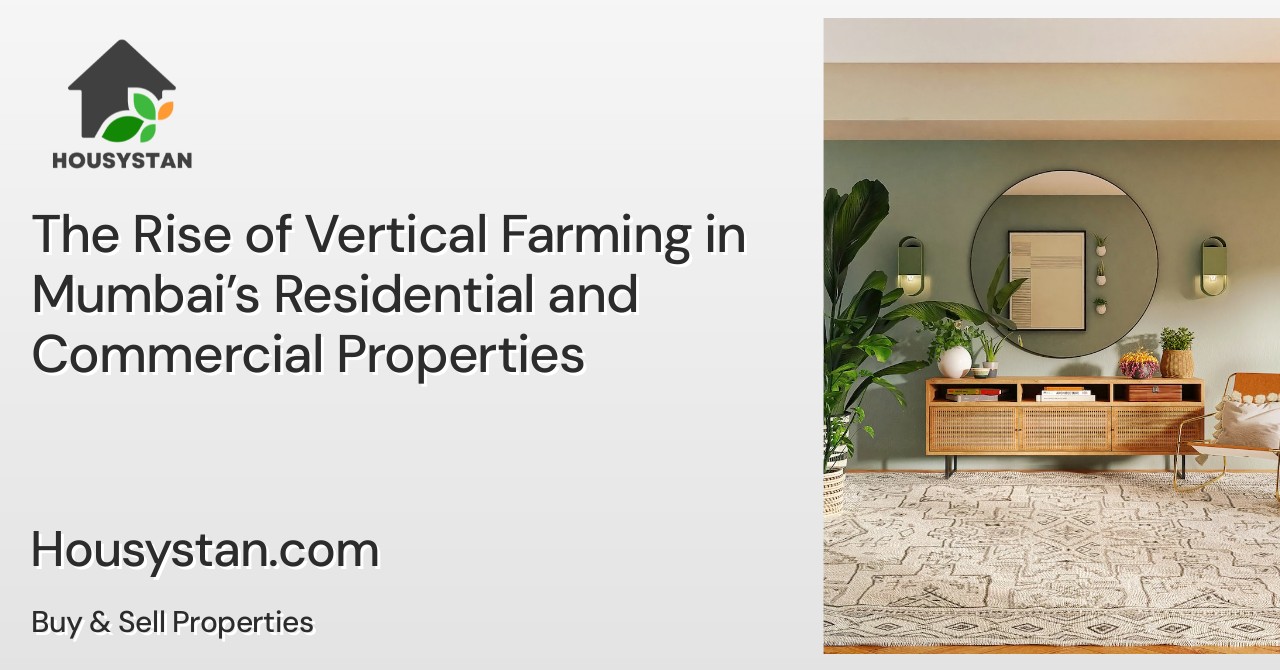The Rise of Vertical Farming in Mumbai’s Residential and Commercial Properties
Read latest blogs and articles from Housystan

The Information mentioned here was last updated on:
29/1/2026The Rise of Vertical Farming in Mumbai’s Residential and Commercial Properties
In recent years, Mumbai has witnessed a significant transformation in urban agriculture, with vertical farming emerging as a sustainable solution for both residential and commercial spaces. This progressive approach leverages limited urban real estate to cultivate fresh produce and greenery, enhancing the city’s environment and food supply. As Mumbai continues to expand vertically, vertical farming offers residents and businesses a way to maximize available space while promoting eco-friendly practices.
Mumbai’s dense population and limited open land make traditional farming impractical within city limits. Vertical farming addresses these challenges by utilizing innovative technologies such as hydroponics, aeroponics, and controlled environment agriculture. These methods allow crops to thrive indoors, often requiring less water and minimal pesticide use compared to conventional farming. With a focus on efficient resource management, vertical farms can be set up on rooftops, balconies, or even inside office buildings, making them ideal for Mumbai’s unique landscape.
- Verified Tenants/Buyers
- Unlimited Property Listing
- Zero subscription/charges fee
For homeowners, integrating vertical farms into apartments or housing complexes offers multiple benefits. Residents can enjoy access to fresh, organic vegetables and herbs year-round, reducing dependency on external supply chains and lowering their carbon footprint. Vertical gardens also improve indoor air quality and add aesthetic value to living spaces, creating a healthier urban environment.
Commercial properties in Mumbai are also embracing this green revolution. Shopping malls, corporate offices, and hotels are installing vertical farms to provide visitors and employees with fresh produce and visually appealing green spaces. These initiatives not only contribute to sustainability goals but also enhance the reputation of businesses committed to environmental responsibility. By adopting vertical farming, companies can demonstrate leadership in urban sustainability, attracting eco-conscious clients and tenants.
The rise of vertical farming in Mumbai’s residential and commercial properties signifies a positive shift towards sustainable urban living. As the city continues to grow, the adoption of innovative agricultural practices will play a pivotal role in shaping a greener, healthier future for Mumbai. Embracing vertical farming is not just a trend—it is a vital step towards resilient food systems and improved urban life.